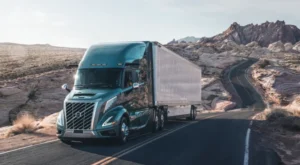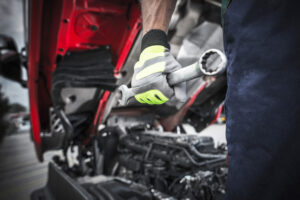WASHINGTON — The trucking industry is supporting steps by congress to roll back the Advanced Clean Trucks and Omnibus NOx waivers granted to California.
SEMA’s Three Letter Phrase Says it All
The Specialty Equipment Market Association (SEMA) used a succinct three letter expression of their support: “LFG.”
SEMA represents the automotive aftermarket industry, a third of which are businesses that are entirely dependent on products for internal combustion engine (ICE) vehicles.
“To enact an ICE engine ban through EV mandates would represent a significant hit to the nation’s economy by causing irreparable harm to an industry that annually delivers a $337 billion economic impact and supports more than 1.3 million American jobs through domestic manufacturing and sales,” SEMA said. “33% of the nation’s automotive aftermarket industry is ICE-dependent, representing over $100 billion in economic impact to the U.S. economy, and impacts roughly 330,000 jobs.”
SEMA noted that it is not anti-EV. Rather, it champions a technology-neutral approach that fosters innovation and ingenuity. The association will continue efforts to preserve Americans’ rights to vehicle choice and the automotive aftermarket industry’s ability to design, manufacture, and bring to market products that help solve the emissions challenge.
During the 2024 presidential campaign, SEMA, through its Driving Force Action SuperPAC, educated voters about the damaging impact of EV mandates, and the profound importance of empowering the automotive aftermarket to develop innovative solutions to carbon emissions using American ingenuity.
American Trucking Association
“The trucking industry commends our congressional champions for introducing these resolutions, which would take the regulatory keys away from unelected CARB bureaucrats whose mad dash to zero poses a grave threat to the supply chain and our economy,” said Chris Spear, American Trucking Associations (ATA) president, CEO. “The patchwork of unachievable EV mandates enabled by EPA’s waivers to California threatened to significantly raise costs for American consumers without delivering the promised environmental benefits.”
According to the ATA, trucks today produce 99% fewer nitrogen oxide and particulate matter emissions than those on the road decades ago, and new trucks cut carbon emissions by over 40 percent compared to a truck manufactured in 2010. As a result, 60 of today’s trucks emit what just one truck did in 1988.
“Thanks to the leadership of these lawmakers, Congress can restore EPA’s authority to set commonsense, achievable national standards that promote innovation and put us back on the path to lowering emissions while accounting for the operational realities of our essential industry,” Spear said. “We look forward to working with members of congress in both chambers to pass these resolutions expeditiously and send them to President Trump’s desk where they can be signed into law.
The measures of disapproval were introduced by Reps. John Joyce (R-Pennsylvania), John James (R-Michigan), Jay Obernolte (R-California), Russ Fulcher (R-Idaho), Doug LaMalfa (R-California), Kevin Kiley (R-California), and Lisa McClain (R-Michigan).
EPA Roll Back
In March, the U.S. Environmental Protection Agency (EPA) said it was reconsidering the Biden-Harris administration’s greenhouse emissions standards that are set to go into effect for model-year 2027 and later heavy-duty trucks. The agency is also reconsidering regulations for passenger vehicles and light- and medium-duty vehicles.
The announcement came in a March 12 press release from EPA Administrator Lee Zeldin. In addition to imposing more than $700 billion in regulatory and compliance costs and making it difficult for Americans to buy safe, affordable cars, Zeldin said the standards would increase the overall cost of living.
The EPA is also reevaluating other parts of the Biden-Harris “Clean Trucks Plan,” including the 2022 Heavy-Duty Nitrous Oxide rule, which “results in significant costs that will make the products our trucks deliver, like food and other household goods, more expensive.”






I’m all for clean energy resolve ,but I could’ve sworn my cleaner greener today for a better tomorrow was to get rid of all metal soup cans and go with more style bags which are recyclable also and a ban or replacement for wood railroad ties and change to all concrete and steel for a safer rail and millions of trees and I mean millions by 20 million that get used for wooden ties every yr and only half or more of wood railroad ties get used due to insp criteria and also solar panels put up beside all railroad tracks . It would create over 700,000 jobs for many yrs to come . trees not timber would reduce green house gases etc and lower housing project cost and with solar steming along all tracks lots of electricity and lower electricity bills and water can then be piped and pumped to the farthest reaches of the country and potentially even natural gas and so on creating in excess of millions of jobs for hundreds of yrs . Stand with me on this America and world its your future and your children’s future .It with create thousands of jobs in every state for yrs past us and past our children . Time for big business to get with 21st century and old way of doing things with concrete .